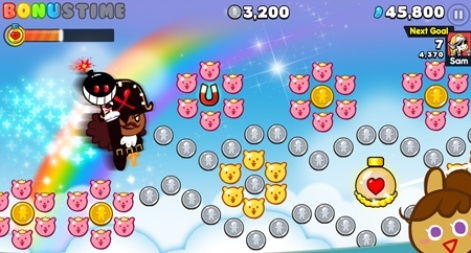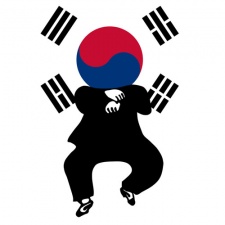Given the importance of the Asian region to the global mobile games industry, PocketGamer.biz is always looking to bring its readers better analysis from the region.
That's one of the reasons we have a dedicated section for Asian news.
With that in mind, we've partnered with Korean games agency Latis Global Communications to provide a regular opinion piece - we're calling it The News Gangnam Style,
The tech world has been buzzing with news of Alibaba's record shattering IPO.
Raising $25 billion, they showed the world just how much might Asia's tech giants can wield.
But while Alibaba has been stealing the show, there has been a lot of other important activity happening in Asia's mobile markets, particularly in Korea.
Game companies exploding small cap market
It would be hard to ignore the ubiquity of social casual gaming in Korea over the past few years. No subway ride is complete without noticing the hordes of passengers buried into their phones playing 4:33's latest title, or crushing high scores in Anipang.
Those subway warriors have propelled Korea's mobile gaming market to new heights with four of the county's most influential game developers now each valued at more than $1 billion by either public or private market investors.

The companies include Com2uS (c.$1.2 billion), NCSoft (c.$3 billion), Nexon (c.$3.5 billion), and Smilegate (c.$3.8 billion).
Kakao and Line, two of the biggest mobile game distribution platforms in the country, are both valued at over $9 billion. In spite of these big valuations, however, Korea has remained relatively conservative compared to its Western counterparts, which have been plagued by sour valuations like those of King and Zynga.
Line is a good example.
Line backs out of IPO
Set to be one of the blockbuster IPOs of the year, analysts estimated Line's market valuation at nearly $10 billion before the company announced in September that it would be backing out of its IPO.
Though they are based out of Japan, Line is owned by Naver Corp, the South Korean search portal company.
Alibaba's plans to get into the mobile game market mean more opportunities for smaller dev studios.
Line had already made public filings in the US and for the Tokyo Stock Exchange, but they never clearly stated whether they intended to do a double filing or focus on a single country.
Though the company has not issued any clear statements as to why they delayed, it's not hard to speculate that the timing of Alibaba's offering may have had something to do with it. They are now looking at a possible 2015 IPO.
But Line isn't the only company playing more conservatively in a market that has been plagued by brash failures and lackluster valuations.
Microcap successes and strong start-ups
For indie developers and small game studios, the activity in the KOSDAQ's microcap companies has proven promising.
Devsisters (KOSDAQ:194480) filed for its IPO this month, and investors flocked to the company now valued at $136 million based off its hit mobile title, Cookie Run.
With prospects for licensing deals in south east Asia and word of a follow up title, Devsisters' IPO attracted the likes of big investment firms like Blackrock, Fidelity Investments, and Wellington Management.

SundayToz, makers of Anipang, have seen similar success.
Anipang was one of the original games offered on Kakao and the small studio has been propelled by the momentum of being one of the first movers on the biggest mobile game platform in the country.
It has been almost a year since they filed for their IPO in November 2013 and their current market value is estimated at $160 million. Now other small start-ups in Korea are benefiting from the confidence raised by their predecessors.
PATI Games announced a $20 million investment from Tencent.
PATI Games, the makers of I Love Coffee, for example, announced on 1 September a $20 million investment from Tencent in exchange for a 20 percent stake in the company. Though they have yet to file for a public offering, they are expecting to head into overseas markets soon.
Finally, 4:33 studios, founded by ex-Nexon members and famous for their top grossing title, Blade, is getting a lot of attention from investors as well.
In May 2013, the company received $9 million from LB Investments, estimating the company's worth at the time around $40 million. The company has expanded since and with big successes over the summer with Blade, both Tencent and Alibaba have turned their heads toward the burgeoning start-up.
4:33 has already said that it plans to distribute games through Alibaba's game platforms.
A picture of global expansion
While much of the M&A activity in Asia can seem disjointed and unrelated, a picture of a much healthier and global start-up industry is starting to form in Korea and in north east Asia in general.
Alibaba's massive success with its IPO and explicit plans to get into the mobile game market mean more opportunities for smaller development studios.
Alibaba's CEO, Jack Ma, stated in an interview discussing the future of the company that it will likely keep focus on Asia, rather than trying to compete inside of the US. If this holds true for its game publishing branch, its good news for Korean developers. While some Korean game companies have had success in the US and other Western markets, they have traditionally had better luck close to home.
Combined with Tencent's aggressive investment activity to keep a firm grip on its market share, small Korean developers have unprecedented opportunities.
Only time will tell if they are able to seize upon it better than their competition in China and Japan.
Curtis File is the PR Coordinator for Latis Global Communications, a game agency in South Korea helping international game companies break into Korea, and domestic developers find success abroad.
Latis has worked on the localization strategy of games like Archeage, Maple Story, and the mobile hit Hello Hero.



















